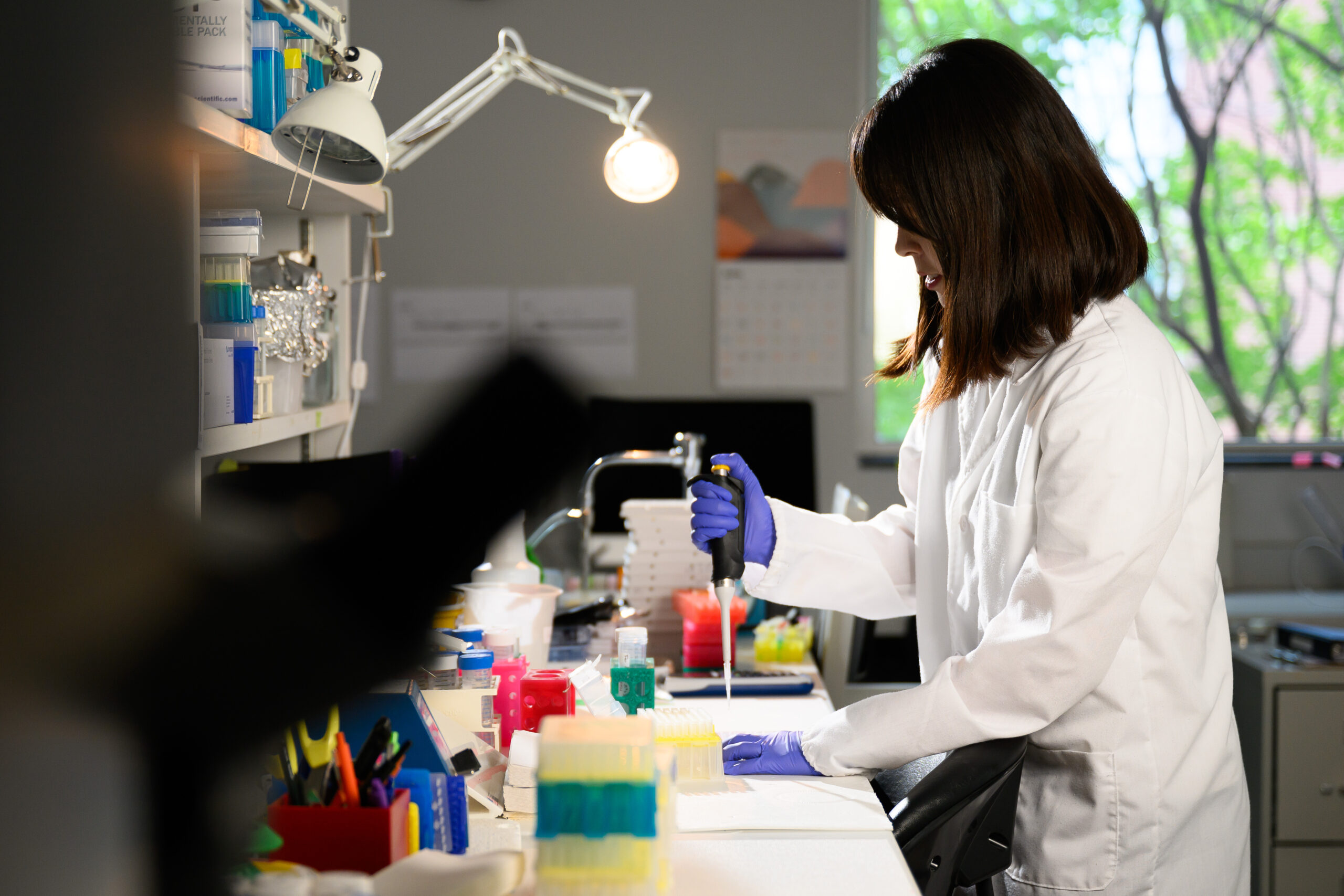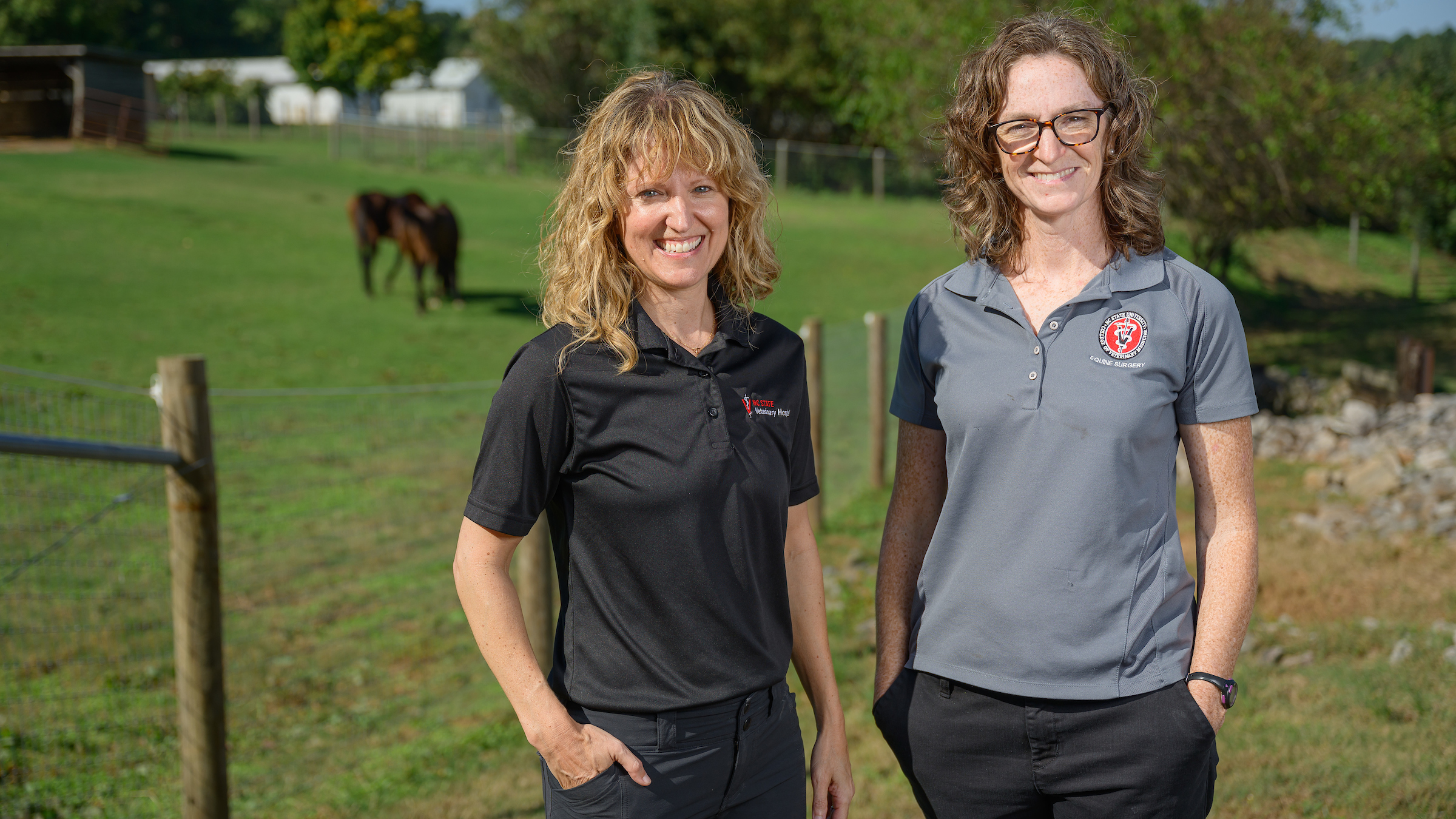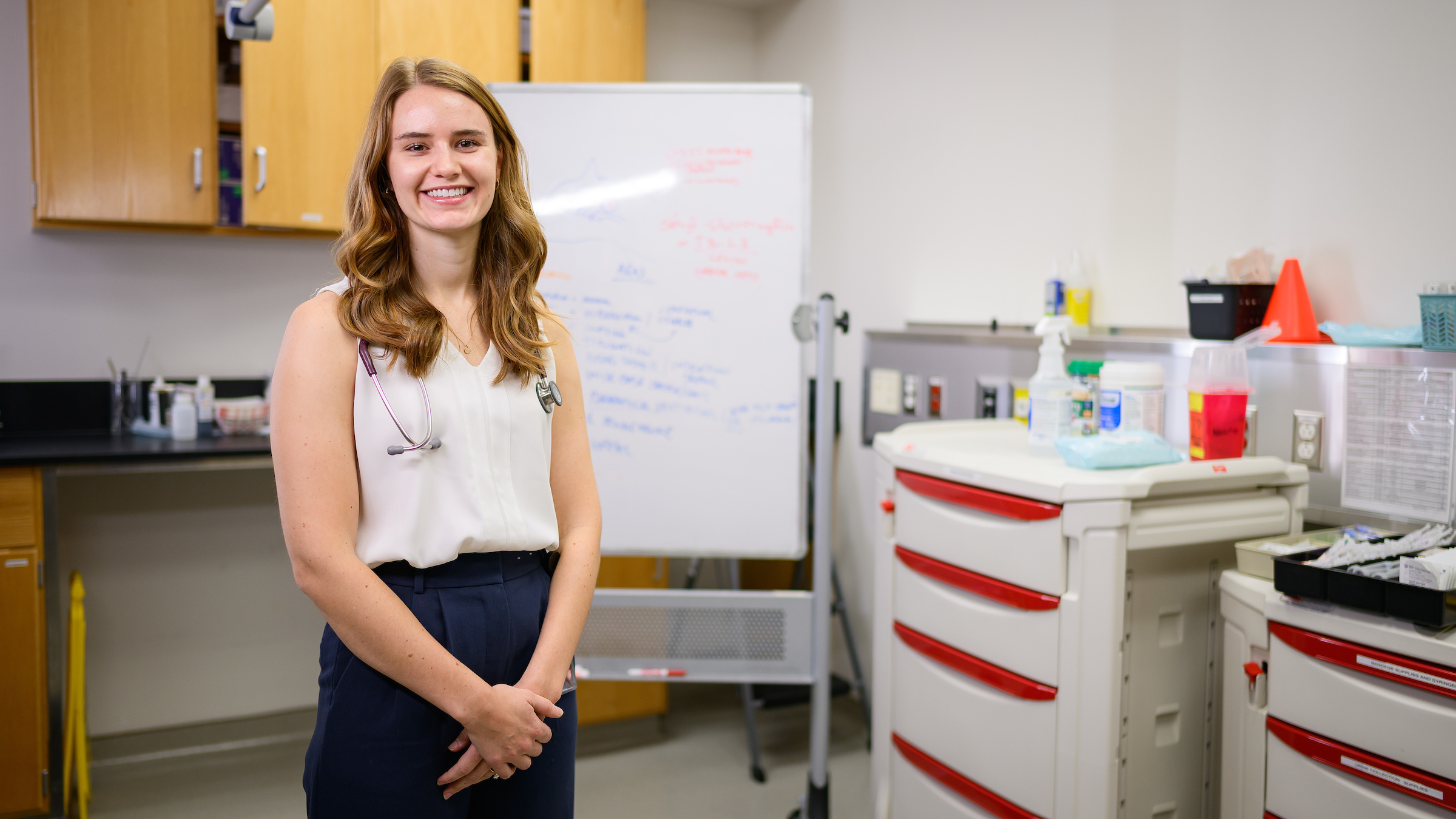NC State Veterinary Hospital Clinical Service Bridges Veterinary Medicine, Pharmacology

A 1996 federal regulation—the Animal Medicinal Drug Use Clarification Act—continues to influence both the veterinary and pharmaceutical professions and is on the mind of Gigi Davidson, director of clinical pharmacy services at the North Carolina State Veterinary Hospital.
“It was illegal for veterinarians to use human label drugs before the clarification act,” says Davidson. “Animal-only medicines were dispensed through the veterinarian who had complete autonomy in prescribing and filling drugs for animals. The new legislation, however, allowed for appropriate off-label use of human drugs for companion animals. Veterinarians started sending prescriptions to pharmacies and the pharmacy profession simply was not ready.”
The two professions were on separate, parallel tracks when it came to dispensing drugs. The irony, according to Davidson, is the pharmacist is the only health care professional who is expected—and legally responsible—for caring for both humans and animals.

Bridging the veterinary and pharmacy worlds is what Davidson is about. She designed an independent study program for herself focusing on the then fledging field of veterinary pharmacy when she was in the UNC School of Pharmacy. She joined what was then the Veterinary Teaching Hospital at the College of Veterinary Medicine and has since worked to help others who are interested in bridging veterinary medicine and pharmacology.
Through Davidson’s efforts, the CVM established a residency program in clinical veterinary pharmacology in 2009. NC State is currently one of four veterinary programs in the nation offering this experience. Erin Brewer and Erika Rost are the 2015-2016 residents.
“One of my instructors, who had been a pharmacy resident at NC State, taught an elective in veterinary pharmacology at the Medical University of South Carolina,” says Rost. “I really became interested in pursuing veterinary pharmacology as a career after that elective.”
Animals came first for Brewer—a graduate of the Eshelman School of Pharmacy at the University of North Carolina. “I worked as a zoo keeper for many years at the Duke Lemur Center,” says Brewer. “I met Gigi in 2009 when NC State was developing a pharmacy residency. I was considering pharmacy school and the connection was natural.”
The one-year residency program has four core elements:
- Clinical Service—residents work with and support clinicians in small and large animal clinics by attending patient rounds and performing drug utilization review on patients;
- Research—residents conduct their own independent bench or clinical research and may develop, implement, administer, and monitor investigational drug studies;
- Staffing—residents work in the NC State Veterinary Hospital clinical pharmacology laboratory compounding medicines, providing drug information, and monitoring pharmacy externs;
- Education—residents co-instruct the third-year veterinary pharmacy therapy elective at the UNC Eshelman School of Pharmacy and teach fourth-year DVM students about writing prescriptions and interacting with pharmacists.
Residency leads to certification as a Diplomate of the International College of Veterinary Pharmacy and a possible careers with colleges of pharmacy; veterinary teaching hospitals; specialty practices; captive-animal organizations such as zoos, aquariums, sanctuaries; federal regulatory agencies; the veterinary pharmaceutical industry; and the compounding pharmacy industry.
The pioneering spirit continues in NC State veterinary pharmacology program. Davidson, who last year received the U.S. Pharmacopeial (USP) Convention’s highest honor—the Beal Award for Distinguished Volunteer Service, is initiating a novel outreach program.

Residents Rost and Brewer are beginning to work with private practice veterinarians who are interested in learning the basics of non-sterile drug compounding to provide owners with customized medicine for their pets. The pilot program could develop into a mutually beneficial business model in which participating pharmacists support veterinarians, including consulting on drug inventory practices and regulatory issues.
“Compounding their own medications could be a real advantage for veterinarians,” says Davidson, who is the chair of the USP Compounding Expert Committee. “Sending a prescription out to be compounded takes days, lengthening the time before a pet owner can administer the time-dated drug. If they compound the drug themselves, veterinarians can be confident the patient is receiving the most efficacious medication in the shortest time possible.”
The growing relationship between the CVM and the Eshelman School of Pharmacy represents another pioneering aspect to supporting the veterinary and pharmaceutical professions.
“In the survey our residents did last year of 15,000 licensed pharmacists in North Carolina, some 77% reported that they filled prescriptions for animals,” says Davidson. “But only 4% reported having any training at all in veterinary pharmacotherapy. Working together, the NC State and UNC programs can improve that statistic.”


